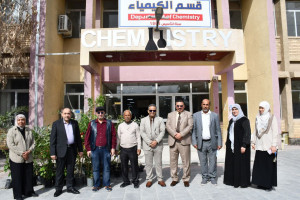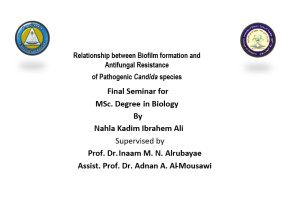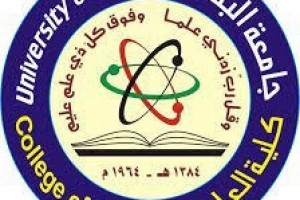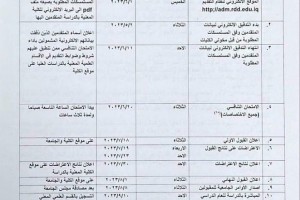
The College of Science at the University of Basrah organized a symposium entitled (Some Immunological Changes Associated with SARS-CoV-2) for graduate student Saad Qasim Dhuaif. The study aims to provide information and a database about the pathogenesis of coronavirus infection in Iraqi society and comparing it with global variables associated with patients, in addition to suggesting alternative solutions to detect the virus that is less expensive and faster in diagnosis, taking into account the accuracy of the results. It included taking blood samples and nasopharyngeal swabs from 631 patients with SARS-CoV2 in the hospital or the emergency and advisory division in Basrah Teaching Hospital, assessing their immunity by dividing them into patients with severe and moderate symptoms and investigating hematological and biochemical changes and the reasons for an increase in some variables or a decrease in some other variables through the flow cytometry technique during the first and second waves.
One hundred twenty-five patients were followed up during nine days, with a group of tests every 4 days, and the immune changes were observed during this period. Also, TLR4 and TLR3 gene expression was evaluated between two groups, the first suffering from severe symptoms and the other group with moderate symptoms, and comparing them with a healthy control sample. The study found that Covid-19 patients, in general, suffer from up-regulated in TLR3 and TLR4 With a significant increase in COVID-19 patients with severe symptoms. The study recommendations were:
1-The confounding acquired response associated with Covid-19 infections needs to be studied extensively and research into the factors that led to the variance of response to most viruses.
2-Changes in the level of biochemical factors in the serum and body fluid of patients should be considered as a basis for choosing the type of treatment.
3-The Ministry of Health should adopt the assessment of the number of COVID-19 Antigen-specific test diagnoses and release it to diagnose the virus, because of its impact on reducing economic waste on health institutions and the patients.







